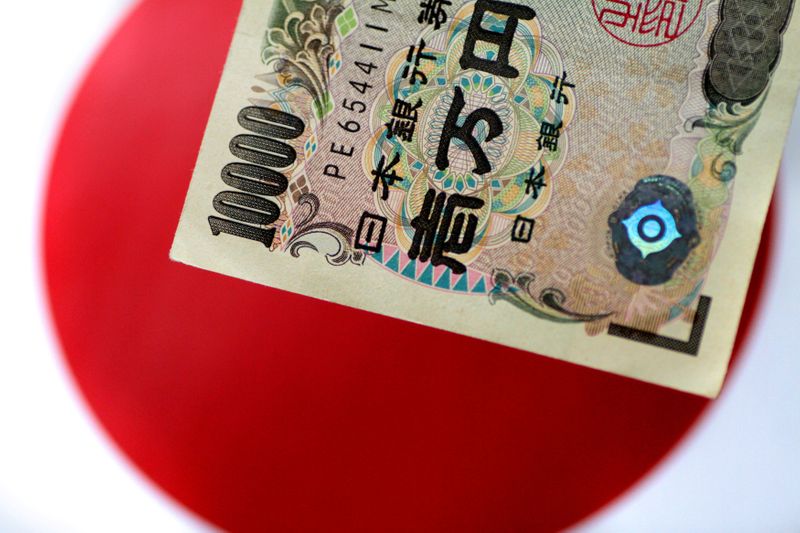By Takaya Yamaguchi
TOKYO (Reuters) -Japan will abolish on Thursday a nearly two-decade-old panel consisting of academics and corporate executives that has offered long-term proposals on fixing the country's worsening finances, two government officials told Reuters.
The move comes as huge stimulus packages to combat the coronavirus pandemic add to Japan's already huge public debt, which is the largest among major industrialised nations and twice the size of its economy.
The panel, which met about twice a year to debate Japan's fiscal policy and long-term debt issuance plans, will hold its final meeting on Thursday, the officials said on condition of anonymity as they were not authorised to speak publicly.
"Given the changing environment surrounding Japan's fiscal state, we need to reset discussions," one of the officials said.
A finance ministry official confirmed the Reuters report, saying that a new forum will be established in future to replace the panel, possibly in collaboration with other panels in and outside of the ministry.
One panel member floated an idea of cooperating with the Council on Economic and Fiscal Policy (CEFP), the premier's top economic advisory panel, so as to address various risks in the post-coronavirus era.
Among the risks, the official voiced the need to fix the shortened average maturity of Japanese government bond (JGB)issuance caused by massive issues of treasury bills to fund coronavirus stimulus.
Other sources of concerns were a possible change in the course of the Bank of Japan's monetary easing that has helped keep long-term rates around 0%.
Weakening JGB market functions due to prolonged easing, and diversifying risks such as natural disasters, fragile emerging markets, geopolitical risks, cyber attacks, and their effects must also be taken into account in discussing JGB market in the medium to long run, the official added.
Created in 2004, the panel served as a mouthpiece for the finance ministry by warning of Japan's worsening finances and calling for the need to prevent debt issuance from ballooning.
The panel's proposals formed a basis for discussions by a group of primary dealers and bond investors on how much debt Japan can issue without disrupting markets each year.
"Some in the bond market may feel worried because now is the time when Japan needs to seriously think about its fiscal state from a long-term perspective," said Katsutoshi Inadome, a strategist at Mitsubishi UFJ (NYSE:MUFG) Morgan Stanley (NYSE:MS) Securities.
Japan has repeatedly pushed back the deadline for achieving its fiscal target and deployed massive stimulus packages totalling $3 trillion over the past year to combat COVID-19.
The balance of outstanding government bonds is likely to hit a record 990 trillion yen ($8.9 trillion), or 177% of nominal gross domestic product (GDP), by the March 2022 end of the current fiscal year, according to finance ministry estimates.

Despite the huge debt issuance, Japan's long-term interest rates have been stable as the central bank gobbles up bonds to meet a pledge to keep 10-year bond yields capped at zero.
($1 = 110.9500 yen)
